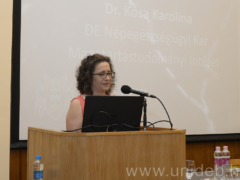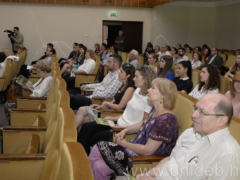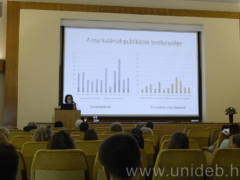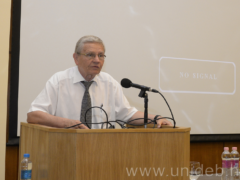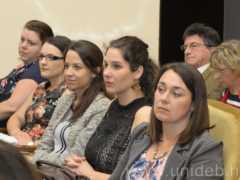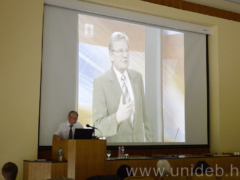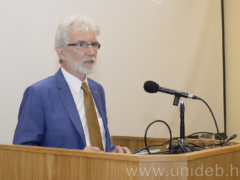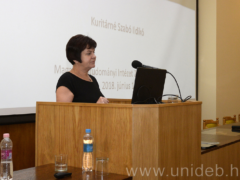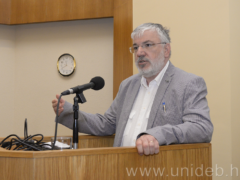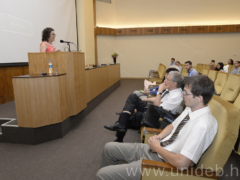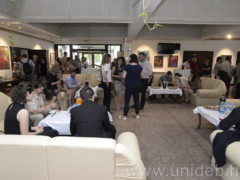The Institute of Behavioural Sciences was established at the then Medical University of Debrecen in 1997 to study the theoretical and practical aspects of human behaviour.
-I arrived in Debrecen with 25 years’ experience at a time when the line ministry recognised the importance of teaching behavioural sciences. The then Medical University awaited me with an arsenal of opportunities, Professor Emeritus Péter Molnár underlined.
While in 1997 the Institute of Behavioural Sciences taught only one subject, today its professionals train students at six faculties (Faculty of General Medicine, Faculty of Public Health, Faculty of Pharmaceutical Sciences, Faculty of Dentistry, Faculty of Sciences, and Faculty of Humanities) of the Medical University both in English and in Hungarian. They teach subjects related to psychology (medical psychology, communication, behavioral medicine) and are responsible for two faculties of their own. philosophy and natural sciences (medical anthropology, bioethics, and medical sociology).
– The work that my colleagues do in the training of clinical psychologists, for example, is unique in that they teach 1300 periods over four years, providing students with thorough theoretical and practical knowledge. Simultaneously they undertake efficient roles as experts in nationwide professional organisations. We are proud of the fact that, over the past several years, thirty-two awards have been presented to our professionals, said Karolina Kósa, Director of the Institue and Dean of the Faculty of Public Health.
The Institute of Behavioural Sciences of the University of Debrecen first offered a Master’s Degree in health psychology in 2008, the only institute of its kind in the entire country. Over the past five years, 148 students have earned their degrees, many of whom have achieved outstanding results in their university’s Scientific Students’ Associations Conference and the National Scientific Students’ Associations Conference .
– Another training by our Department of Clinical and Health Psychology is that of clinical psychologist. Close to half the applicants for this training come from Budapest every year, despite the fact that the same major is also available in the capital, as well. Sometimes students choose this training from as far away as Dunántúl (the Transdanubian region). It may be a revealing fact that several clinical psychologists with a great amount of experience have left their jobs so that they can become teachers at our institution, added Ildikó Szabó Kuritárné, Head of the Department.
Participants of the formal sitting were given a review of the history of training in professional psychology at the Faculty of Public Health by Professor Antal Bugán, followed by Attila Bánfalvi, associate professor, who described the functioning of the Department of the Department of Health Life Sciences of the Institute. The Head of Department identified the utilisation of the approach and methodology of the humanities (bioethics, medical anthropology, medical sociology, and medical philosophy) as their main goal that would promote dialogue between „the two cultures” of medical and health sciences.
Press Office, unideb.hu










